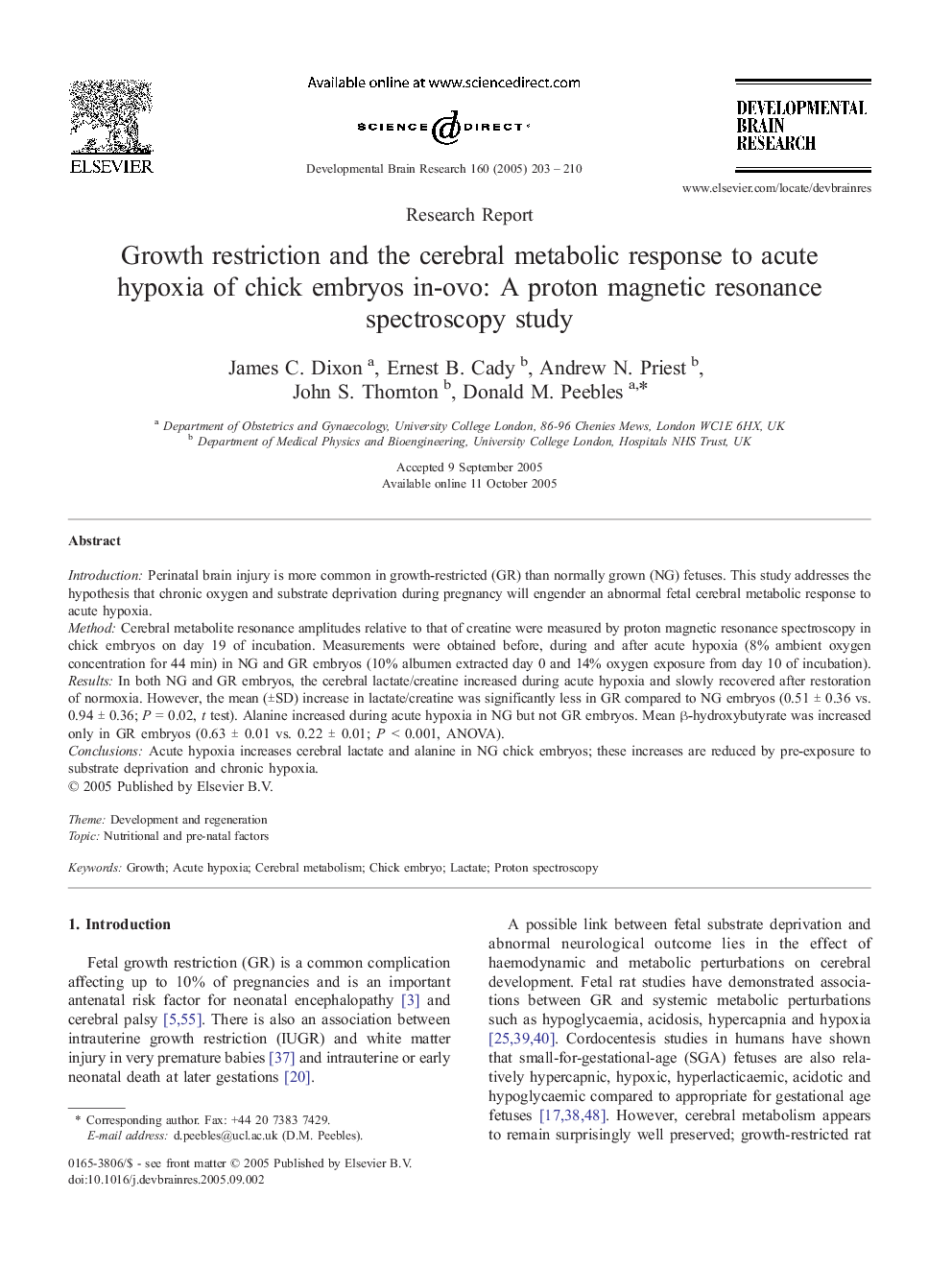| Article ID | Journal | Published Year | Pages | File Type |
|---|---|---|---|---|
| 9414492 | Developmental Brain Research | 2005 | 8 Pages |
Abstract
Introduction: Perinatal brain injury is more common in growth-restricted (GR) than normally grown (NG) fetuses. This study addresses the hypothesis that chronic oxygen and substrate deprivation during pregnancy will engender an abnormal fetal cerebral metabolic response to acute hypoxia. Method: Cerebral metabolite resonance amplitudes relative to that of creatine were measured by proton magnetic resonance spectroscopy in chick embryos on day 19 of incubation. Measurements were obtained before, during and after acute hypoxia (8% ambient oxygen concentration for 44 min) in NG and GR embryos (10% albumen extracted day 0 and 14% oxygen exposure from day 10 of incubation). Results: In both NG and GR embryos, the cerebral lactate/creatine increased during acute hypoxia and slowly recovered after restoration of normoxia. However, the mean (±SD) increase in lactate/creatine was significantly less in GR compared to NG embryos (0.51 ± 0.36 vs. 0.94 ± 0.36; P = 0.02, t test). Alanine increased during acute hypoxia in NG but not GR embryos. Mean β-hydroxybutyrate was increased only in GR embryos (0.63 ± 0.01 vs. 0.22 ± 0.01; P < 0.001, ANOVA). Conclusions: Acute hypoxia increases cerebral lactate and alanine in NG chick embryos; these increases are reduced by pre-exposure to substrate deprivation and chronic hypoxia.
Keywords
Related Topics
Life Sciences
Neuroscience
Developmental Neuroscience
Authors
James C. Dixon, Ernest B. Cady, Andrew N. Priest, John S. Thornton, Donald M. Peebles,
